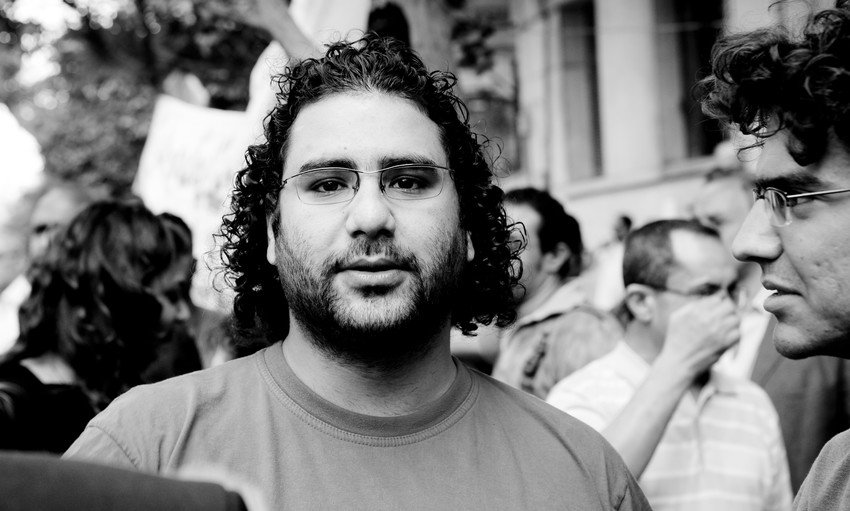
Egyptian rights activist freed after 5 years in prison

A leading Egyptian pro-democracy activist was released from prison early Friday after serving a five-year sentence for organizing and taking part in protests, his family and lawyer said.
The terms of his release, however, require that he report to a police station every day for the next five years and will remain under “police observation”.
Alaa Abdel-Fattah was a prominent voice among young Egyptians leading the 2011 uprisings that swept the Middle East and in Egypt and toppled long-time President Hosni Mubarak.
The blogger and software engineer was imprisoned three years later when authorities imposed draconian laws banning public gatherings and unauthorized demonstrations.
Critics deem the move as another sign of Egypt’s return to autocratic rule.
He was convicted for taking part in a peaceful demonstration following the military’s ouster in July 2013 of Egypt’s freely elected but controversial Islamist President Mohammed Morsi.
“Alaa got out,” his sister, Mona Seif, wrote on Facebook and Twitter on Friday. His other sister, Sanaa Seif, posted a video on Facebook of Abdel Fattah playing with a dog.
His lawyer, Khaled Ali, confirmed the release by posting on Facebook: “Thanks God, Alaa Abdel-Fattah at home.”
اللقاء الأول
علاء وتوكة
💓 pic.twitter.com/mjkugrqrR3— Mona Seif (@Monasosh) March 29, 2019
Facebook pages set up in support of Abdel-Fattah, including “Free Alaa,” posted videos of him grinning, hugging and shaking hands with friends as he walked out of a police station in Cairo.
Fattah is one of many activists jailed since the military overthrew Islamist President Mohamed Morsi in 2013 and cracked down on his Muslim Brotherhood as well as secular pro-democracy activists.
Rights activists say that President Abdel Fattah al-Sisi has overseen an unprecedented crackdown on dissent in Egypt since he took power in 2014. At least 60,000 people have been jailed on political grounds, according to a Human Rights Watch estimate.
Sisi has denied holding political prisoners and his backers say the measures were necessary to stabilise Egypt after its 2011 uprising.






